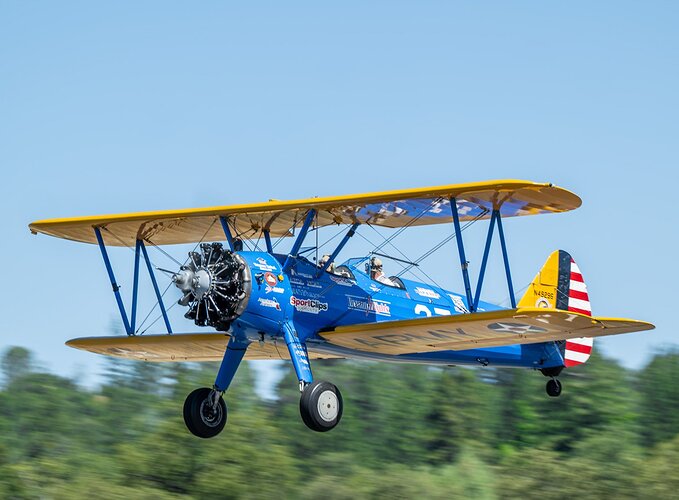Critique Style Requested: Standard
The photographer is looking for generalized feedback about the aesthetic and technical qualities of their image.
Description
I went to a fly-in over the weekend looking to get some shots of planes flying with the propeller blurred and the plane focused. Here’s one I liked even though its prop was obliterated which is better than having it “frozen”. It’s a combination of panning the subject, and a low shutter speed which was a challenge. I had a good time trying.
Specific Feedback
Do you think this capture with the prop pretty much gone still reads?
Technical Details
Z9, 180-600 lens, Nikon 1.4 TC, monopod, 1/125th, f 9.0, 320mm, ISO 64, cropped to 7479 x 5504.
Critique Template
Use of the template is optional, but it can help spark ideas.
- Vision and Purpose:
- Conceptual:
- Emotional Impact and Mood:
- Composition:
- Balance and Visual Weight:
- Depth and Dimension:
- Color:
- Lighting:
- Processing:
- Technical:
Nice capture of this Boeing-Stearman Model 75. It’s painted in authentic WWII trainer livery, except for the advertising. You got good shadow detail in the full sunlight. I’m surprised the prop blurred completely at 1/125, but I usually try for about 1/350. The holy grail is to get sunlight glinting off the prop, and that usually works best at about 1/125.
Dave: I know nothing about capturing airplanes in flight, but I certainly like the detail, sharpness and coloration of the plane.
Very nice panning job on this, Dave. I don’t do much of this kind of thing, but the people I know who do, all favor 1/125th, but maybe this plane runs it’s prop at a higher rpm. It is interesting that it completely disappeared in the image.
That’s a minor variation of the same engine we have – he would have been about 1800 rpm on takeoff. Most planes will run around 1800-2200 for takeoff and a little less in cruise. I usually use about 1/350 for airshows, 1/500 for smaller aerobatic planes pulling a lot of power in maneuvers.
